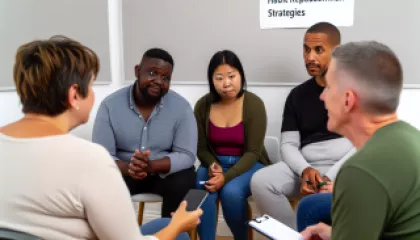The Science of Breaking Bad Habits: Strategies That Work
The human mind is a complex entity, and it's often the driving force behind our habits - both good and bad. Understanding the science behind habit formation can be a powerful tool in breaking those that no longer serve us or are harmful to our wellbeing. This article aims to provide an overview of relevant research on the subject and offer strategies that have been proven effective in breaking bad habits.
Understanding Habits
Firstly, it's important to understand what habits are and how they form. Charles Duhigg, author of 'The Power of Habit,' defines a habit as a choice that we deliberately make at some point, and then stop thinking about but continue doing, often every day. A habit is essentially a behavior that has become automatic and routine, driven by cues in our environment and followed by some form of reward.
"In essence, a habit is a mental shortcut, learned from experience. In a sense, a lot of these habits, even though they can lead to negative outcomes, in the moment, they are serving us."- Dr. Wendy Wood, Professor of Psychology and Business, University of Southern California
The Neuroscience of Habit Formation
The formation and continuation of habits are deeply rooted in neuroscience. The basal ganglia, a part of the brain responsible for motor control, learning, and memory, plays a significant role in habit formation. When we perform an action repeatedly, it forms a neural pathway in the basal ganglia. The more we repeat the action, the stronger this pathway becomes, making the action easier to initiate and harder to forget.
Breaking Bad Habits: Research Insights
The process of breaking bad habits begins with a conscious decision to change. However, the intention alone is not enough. A study published in the European Journal of Social Psychology found that it takes an average of 66 days to form a new habit or to break an old one. The study also highlighted that missing a day does not significantly affect the habit formation process, which is a good news for those worried about occasional slips.
Strategy #1: Replacement Not Elimination
Research has shown that trying to simply stop a bad habit often doesn't work because it leaves a void. Instead, replacing a bad habit with a better one is often more effective. A study published in the journal Behaviour Research and Therapy found that individuals who replaced unhealthy eating habits with healthier ones, such as eating fruits instead of sweets, were more successful at maintaining their new habits.
Strategy #2: Implement If-Then Plans
A strategy known as "implementation intention," otherwise known as "if-then planning," can be effective in breaking bad habits. It involves creating a plan that links situational cues with responses that are counter to the unwanted habitual response. For instance, "If I feel stressed, then I will take deep breaths instead of smoking."
"Implementation intentions harness the brain's associative learning processes to automatically steer behavior towards the intended action."- Dr. Peter Gollwitzer, Professor of Psychology, New York University
Strategy #3: Self-Monitoring
The act of self-monitoring, or consciously tracking your habits, can also be beneficial. This could involve keeping a food diary if you're trying to eat healthier or tracking the number of cigarettes smoked if you're trying to quit smoking. Self-monitoring helps increase self-awareness about your habits and their triggers.
Conclusion
Breaking bad habits is not an easy task. It requires understanding, patience, and perseverance. However, armed with the knowledge of the science behind habit formation and research-backed strategies, it's possible to replace detrimental habits with ones that promote health and wellbeing. Remember, change is a process, not an event. So, be patient with yourself and celebrate every step in the right direction.








